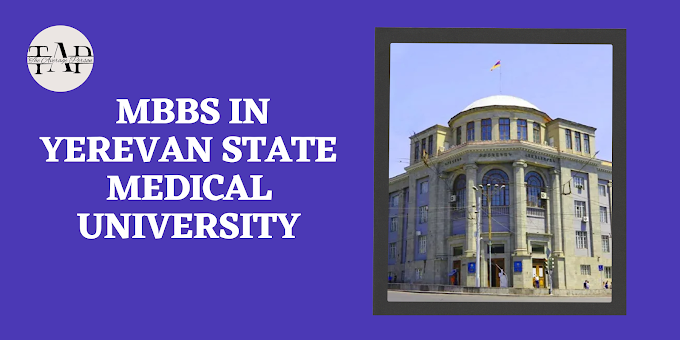
Degrees and credentials are vital, but soft skills are essential to a dynamic workforce. You may have in-demand soft skills that you are unaware of, which may be included in your CV to help you stand out in your job hunt.
What Are Soft Skills?
Soft skills are valuable skills that may be used in any job. They are work-related behaviors, habits, and personality traits. These skills frequently boost an individual's ability to perform a task, whether or not they have the necessary technical skills.
Soft Skills Vs Hard Skills
Hard skills and soft skills are the two categories of skills.
Hard skills, often known as quantifiable abilities, may range from Photoshop mastery to emergency care expertise. Education, training, certifications, and professional experience all help you gain hard skills.
Soft skills, also known as people skills, combine social and interpersonal abilities, character qualities, and professional attitudes required by all occupations. Teamwork, patience, time management, and communication are just a few instances. Soft skills can be acquired via life events or as personality qualities.
Top Soft Skills
Time Management
Time management entails being able to spend your time effectively to operate as efficiently as possible. Companies must trust that remote workers manage their time wisely. In a hands-off situation, maintaining excellent time management skills shows potential employers that you can meet deadlines.
Some time management subskills include:
- Stress control
- Organizing
- Prioritizing
- Planning
- Setting objectives
Team Work

Teamwork will always be a valuable soft skill. It enables you to work efficiently in groups and complete projects. The majority of industries do not exist in a bubble. Working as part of a team is crucial. Show your ability to work successfully in a group to complete projects. Managing disputes, cooperating, and exchanging ideas are essential for teamwork. The larger the organization you work for, the more likely you will be a member of more than one team, which implies solid team-playing abilities are essential.
Teamwork abilities include the following:
- Problem-solving and leadership
- Collaboration
- Coordination
- Exchange of ideas
- Mediation
Digital Literacy
Microsoft Office is no longer acceptable on a résumé. Employers want workers who can rapidly learn digital tools, such as a new task management system, design tool, or even a digital business card. Every organization employs various digital technologies, and understanding them all is impossible. With digital literacy abilities, you may persuade an employer that it doesn't matter if you've never used a particular technology since you can learn quickly.
Adaptability
Your adaptability indicates how effectively you can embrace and adjust to change. Companies and work environments constantly evolve: new team members join, old ones exit, businesses are purchased or sold, and so on. As a result, you must be able to adapt to various scenarios at work.
Adapting to changing settings is critical, as we have all seen with the transition to remote work. Being adaptable involves being able to operate in a variety of settings. It also entails swiftly picking up new abilities and adapting to changes in the job. Here are some examples of adaptability skill sets:
- Self-management
- Optimism
- Calmness
- Analysis
- Self-motivation
Critical Thinking
Employers are more interested in candidates' capacity to think critically. As a result, critical thinking questions will frequently be included in interviews.
For obvious reasons, the capacity to employ creativity, logic, prior experience, study, and accessible resources to grasp fundamentally and then address challenges is intriguing. Highlight this skill by providing an example (or speaking about one in an interview) of a time when your firm faced a difficult circumstance that you effectively addressed/resolved using critical thinking abilities.
Leadership
Leadership is the capacity to coach, train, or guide others. Employers like to recruit people who have leadership potential in any field for two reasons:
- Employees with leadership qualities take more initiative and are more willing to invest in the company's growth.
- Employees with good leadership skills may eventually be promoted to higher-level management jobs.
Even if you are not in a leadership position, there may be times when you must take command of a situation. Employers will be impressed if you can manage people and work well as a team. Leadership abilities include the following:
- Management abilities
- Honesty
- Mentorship
- Selflessness
- Open-mindedness
Interpersonal Communication
Interpersonal skills concern how successfully you connect with others, maintain relationships and leave a favorable impression on those around you. Working in teams, relating to people, and managing conflict are all vital skills in the job. Interpersonal communication is a critical talent to grow in your career, and the ability to collaborate with people becomes even more critical as you advance. Interpersonal skills include:
- Empathy
- Humor
- Networking
- Tolerance
- Diplomacy
Creativity
This is the most underappreciated soft skill since it takes someone imaginative to identify the needs of others who are, and most people need to be more creative.
We are conditioned to associate creativity with disciplines such as art or design. Yet, creativity is a broad phrase that encompasses a variety of sub-skills ranging from questioning to experimenting. As a result, any professional may benefit from creative abilities just as much as artists.
Creativity does not imply becoming an artist; rather, it entails being inventive and imaginative in solving challenges at work. Here are a few instances of creative abilities:
- Imagination
- Mind-mapping
- Innovation
- Experimentation
- Questioning
Communication
Communication is the capacity to transmit or share ideas and thoughts effectively, and it is one of the top soft skills employers want in all areas.
Communication skills include active listening, outstanding presenting and writing ability, and fluent language speaking. The ability to convey technical concepts to partners, consumers, and employees who aren't tech-savvy is a highly sought-after communication skill. The following are the most frequent communication skills:
- Communication through speech
- Communication in writing
- Presentation
- constructive criticism
- Listening actively
Work Ethics
Work ethic refers to respecting one's work and putting out the effort required to produce results. It's a soft skill that recruiters will value in virtually every job you apply for.
Employers want workers who show responsibility, are honest, and can perform the job correctly the first time. Because managers lack the time and resources to babysit, this talent is demanded of all employees. Some examples of soft skills connected to work ethic are:
- Responsibility
- Discipline
- Dependability
- Commitment
- Professionalism
Emotional intelligence
Emotional intelligence, sometimes referred to as EQ (Emotional Quotient), is the key to comprehending your emotions and those around you. Your personal and professional lives can be enhanced by having the ability to understand what others are thinking and feeling, what drives them, and why they act the way they do. More excellent leadership, stronger communication, and better teamwork are all aided by high EQ.
Positive Attitude

Being negative won't help you advance in your work. Aim for positive participation, especially while working with teammates to accomplish a shared objective. Your ability to think positively will speed up your journey on the corporate ladder. Avoid grumbling, slandering, and negative thinking. Making complaints could be more effective. Instead, consider a difficulty and come up with fresh approaches to an issue.
An optimistic individual sees opportunities rather than obstacles. A cheerful outlook influences your work performance, job happiness, and even how others see you. Attitude is contagious.
End Words
The harsh reality about soft skills is that they are essential. Because soft skills are difficult to measure, compute, and define, they are frequently disregarded. On the other hand, mastering soft skills is critical for navigating today's fast-paced, ever-changing work environment and progressing in your career. You, your coworkers, and your business benefit from building, honing, and practicing soft skills over time.









.png)





0 Comments